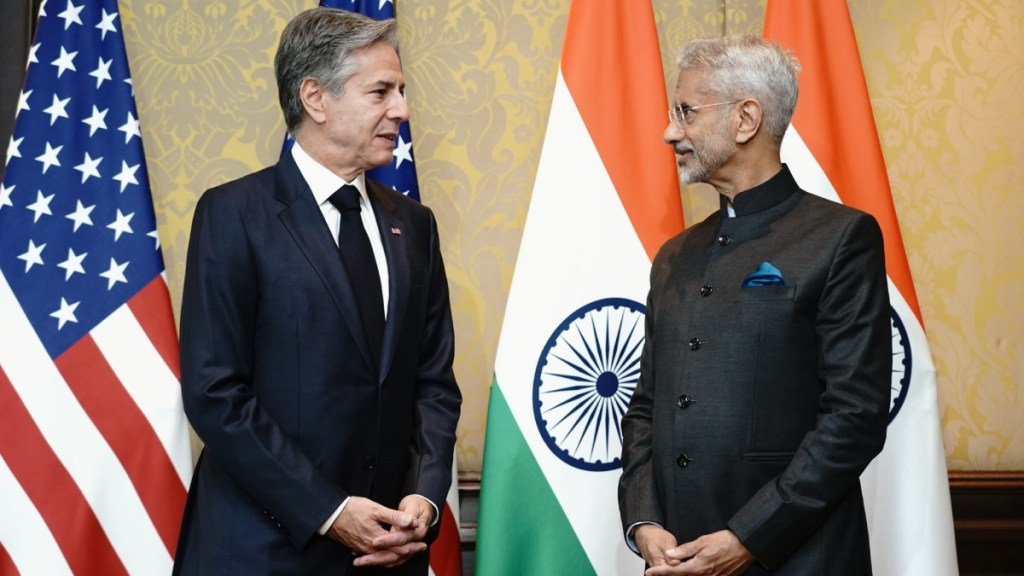At the 2+2 India-US Ministerial Dialogue in New Delhi, External Affairs Minister S Jaishankar focused on fostering collaboration across diverse domains, he talked about the exploration of critical technology, civil outer space cooperation, and strategic ventures in critical minerals.
He lauded the inaugural state visit of Prime Minister Narendra Modi to the United States as a pivotal moment ushering in a “new chapter in India-US ties.” Attributing the positive trajectory in bilateral relations to President Biden’s consequential visit to Delhi in September, Jaishankar highlighted the vital role played by the US leader in ensuring fruitful outcomes at the G20 summit.
Undoubtedly, the Indo-Pacific region emerged as the epicenter of shared strategic and economic significance, constituting more than 65 percent of the global GDP. Within the context of the 2+2 dialogue, the Jaishankar outlined a comprehensive review spanning strategic, defence, and security ties, technology partnerships, supply chain collaborations, and the nurturing of people-to-people exchanges. Beyond the geopolitical arena, he underscored the robust economic ties, with trade volumes surpassing USD 200 billion and a substantial presence of 2,70,000 Indian students in the United States, complemented by a sizable diaspora of 4.4 million.
US Secretary of State Antony Blinken echoed the sentiment, characterizing the India-US relationship as the “strongest bilateral partnership ever.” Delving into collaborative efforts, he highlighted the joint pursuit of innovation to fortify both economies and enhance community security. The cooperation spans semiconductors, advanced biotechnology, clean energy deployment, and joint research and exploration projects in space.
Blinken highlighted the US commitment to the Indo-Pacific, outlining initiatives to boost maritime domain awareness and share commercial satellite data with regional countries to combat phishing, piracy, and drug trafficking. The QUAD partnership with Japan and Australia was emphasized, emphasizing the joint endeavour to promote a free, open, prosperous, secure, and resilient Indo-Pacific. Furthermore, the collaborative coordination on humanitarian relief and disaster response efforts in the region was highlighted.
The two sides delved into geopolitical developments across various regions, with a particular focus on the Indo-Pacific, Middle East, and Ukraine. And expressed shared concern over the war in Ukraine, underscoring its humanitarian toll and the broader impacts on the global economic system and food security. Affirming solidarity, both nations pledged continued humanitarian assistance to Ukraine and underscored the imperative of post-conflict reconstruction.
Joint Communique
A joint statement expressed the firm support for Israel against terrorist attacks, emphasizing adherence to international humanitarian law and the release of remaining hostages.
The commitment to coordinating humanitarian assistance for Palestinian civilians in Gaza, advocating for humanitarian pauses, and working towards a political solution and durable peace underscored the shared diplomatic resolve to preserve stability in the Middle East.
